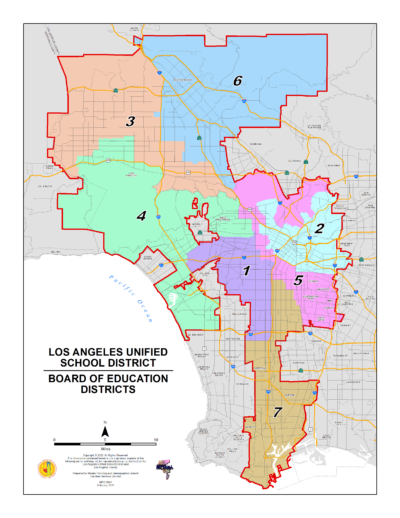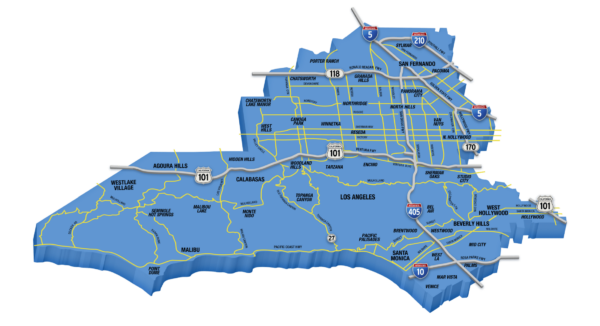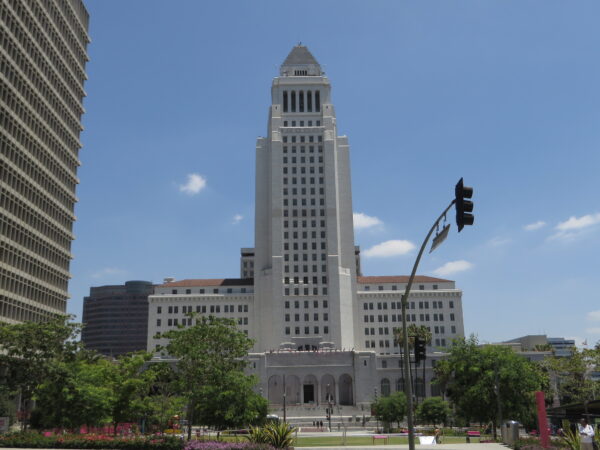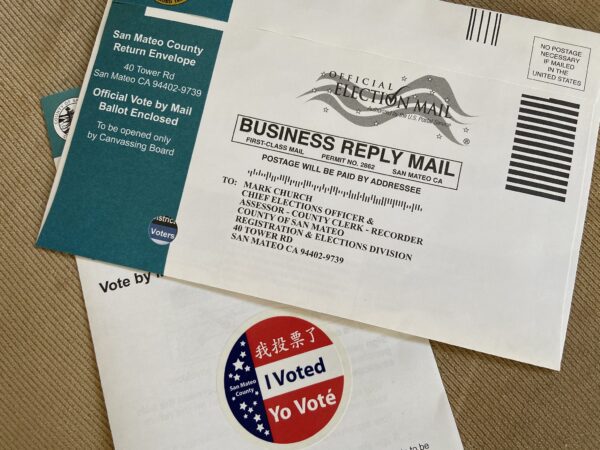Two Los Angeles Unified School District Board of Education members are looking to retain their seats in Tuesday’s election, while four candidates are vying to claim an open seat on the panel that will face difficult decisions brought on by a shrinking budget, declining enrollment and questions about the future of the School Police Department.
Board member Nick Melvoin is looking to retain his District 4 seat, which stretches from the San Fernando Valley, includes parts of West Los Angeles and stretches south to Westchester. He is widely expected to hold onto the seat — with a major advantage in fundraising — but he is being challenged by electrical engineer Gentille Barkhardarian and teacher Tracey Schroeder.
Incumbent Kelly Gonez is also considered a favorite in District 6, which includes areas such as Sun Valley, San Fernando, Mission Hills, Panorama City and North Hollywood. Looking to unseat her are high school teacher Marvin Rodriguez and School Police Sgt. Jess Arana.
Much of the attention in the election, however, is focused on the wide-open District 2 race, with incumbent Monica Garcia termed-out of office. The district includes downtown, Boyle Heights, Lincoln Heights, Highland Park and Montecito Heights.
Four candidates are fighting for the open seat:
— Maria Brenes is the founder of the InnerCity Struggle advocacy group, and claims her years of advocacy work on behalf of students supports her election bid. She boasts endorsements from Reps. Lucille Roybal-Allard and Jimmy Gomez, county Supervisor Hilda Solis and various other elected and labor officials. Brenes says she wants to eliminate bureaucratic barriers in the district for parents and students and will reverse what she calls years of under-funding of schools on the east side of Los Angeles.
— Rocio Rivas is a policy deputy for LAUSD board member Jackie Goldberg. She said she supports a re-examination of school campus safety, police presence on campuses and patrol tactics. She also backs the district’s COVID-19 vaccination policies and says she will work to reverse underfunding of public schools due to policies such as Prop 13. She also said she wants to apply “common-sense standards of transparency, equity and accountability to charter schools.”
— Miguel Angel Segura is a substitute teacher who worked on presidential campaigns for Hillary Clinton and Joe Biden. He said he wants to work to ensure equitable staffing in district schools, noting that he had “no teachers of color” during his time in public schools. He also wants to improve mental health support for students, advocate for programs that give students a path out of “generational poverty” and boost support for English-learners.
— Erica Vilardi-Espinosa is an accountant and community activist, serving on the Los Feliz Neighborhood Council. Among her top issues, she lists school overcrowding, class sizes, mental health options for students, the need for outdoor education and upgrading school facilities. She also cited the need to improve teacher retention through adequate pay and incentives and backs the provision of health food options for schools, and also expanding availability of technical skills training.
The seven-member school board will be making difficult choices in the weeks and years ahead.
Superintendent Alberto Carvalho recently told the board the district is facing a roughly 30% drop in enrollment over the next decade. With enrollment directly tied to funding, such a precipitous decline will lead to difficult budget decisions, including possibly campus closures, reductions in staff or employee benefits.
The school district is also in the midst of contract negotiations with the powerful teachers’ union, United Teachers Los Angeles, which is pushing for 20% raises over the next two years. Carvalho called the situation a “perfect storm” of “unsustainable trends.”
The board will also face continued questions about campus policing. The board in 2021 dramatically slashed the budget of the School Police Department, reducing the size of the force and removing all officers from campuses in favor of staff trained in de-escalation strategies. The move came in response to national pushes for scaling back police agencies following the death of George Floyd in Minneapolis.
But the debate over school safety has been renewed following the massacre at Robb Elementary School in Uvalde, Texas. Following that shooting, Carvalho said the district was updating its safety protocols, such as conducting an “access assessment” to reduce entry points to campuses and exploring “safe corner” designations to students and staff have protected areas on campus to reach in the event of an emergency.







